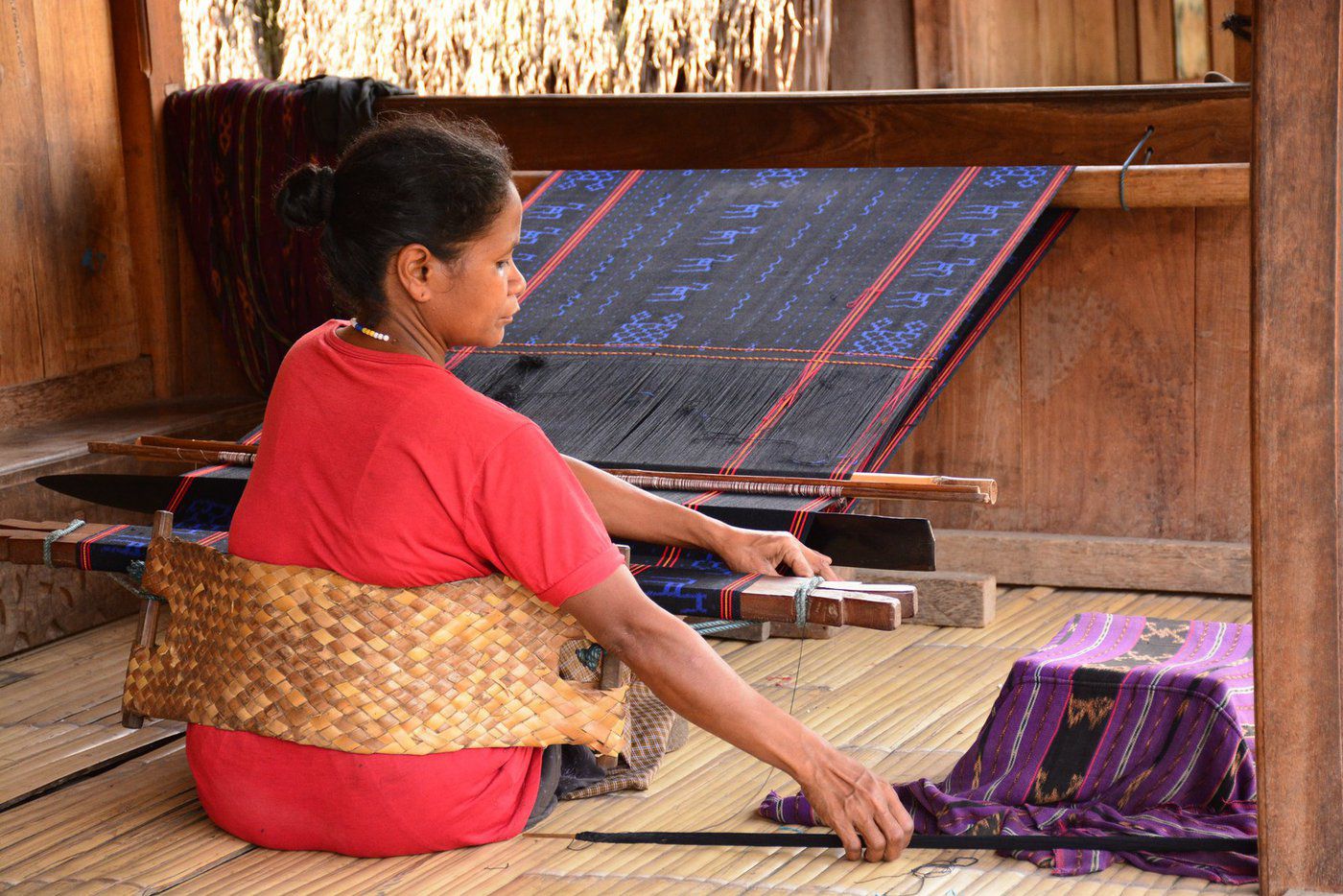By Yulia Indrawati Sari, Elisabeth A.S. Dewi, and A.A.S. Dyah Ayunda N.A., Parahyangan Catholic University
BANDUNG, Oct 18 – When Diana Timoria’s friend died while working illegally overseas, Diana decided to take action.
Hailing from the island of Sumba in eastern Indonesia, Diana had seen many teenagers from poor economic backgrounds in her area deceived into falsifying their identity in order to meet the age requirement to work abroad.
Working illegally, many fall victim to undocumented crime. As many as 67 illegal workers from the region died abroad in a span of six months in 2021.
With poverty rates around double that of the national poverty rate, the people of Sumba Island live on less than US$1.90 a day. The province is one of five that contribute the most illegal workers in Indonesia.
But Sumba is also known for its intricately woven ikat textiles. One piece of ikat can be valued at 2-4 million rupiah or US$130-262. The challenge is bringing buyers to sellers.
Timoria started a youth weaver community in her area called the Kandunu Community, producing ikat to both empower women and raise awareness on the risks of illegal migration in her community.
The group includes young women and men as well as the elderly who share their knowledge, skills and history of weaving. They also spread information on the risks and scams associated with illegal migration.
But empowering the women of the region to escape poverty is likely to take more than earning income from weaving.
For Agustina Ronga Padak (50), weaving is her life socially and culturally. But in her humble house shared with her six children, she struggles to continue her passion because weaving is not lucrative.
For Sumbanese women like Agustina, weaving is just one of the many tasks they perform from dusk until dawn. They farm, tend livestock, and do household chores. They plant corn, tubers, and nuts with harvest failure risk and small surplus to be sold. They also plant subsistence gardens to help feed their family.
Producing an ikat that could sell for a decent profit takes three to four weeks in between taking care of their children, cooking and collecting water from faraway wells. The women weave during the night with limited lighting where electricity is scarce. They then have limited market access to sell their wares, along with market uncertainty.
There are many civil society organisations working to empower women in the region including the Amnaut Bife “Kuan” Foundation (Yabiku), SUNSPIRIT, CIS Timor, PIKUL Foundation, as well as church-based organisations. But they all have limited budgets and are spread across a large area including Sumba, making it difficult for them to address the complex poverty problems in the region.
What’s missing is an effective government program to address a specific poverty issue in the province. The central government has a policy to accelerate the elimination of extreme poverty in priority districts, but in Sumba this has been controversially focused on building dams and developing food estates. There are few concrete regulations and programmes offered by local governments due to budget constraints.
Until policy is aligned with the issues of Sumba, its illegal migration problem is likely to continue.
Yulia Indrawati Sari, Elisabeth A.S. Dewi, and A.A.S. Dyah Ayunda N.A. are lecturers in the International Relations department at Parahyangan Catholic University.
Article courtesy of 360info.












